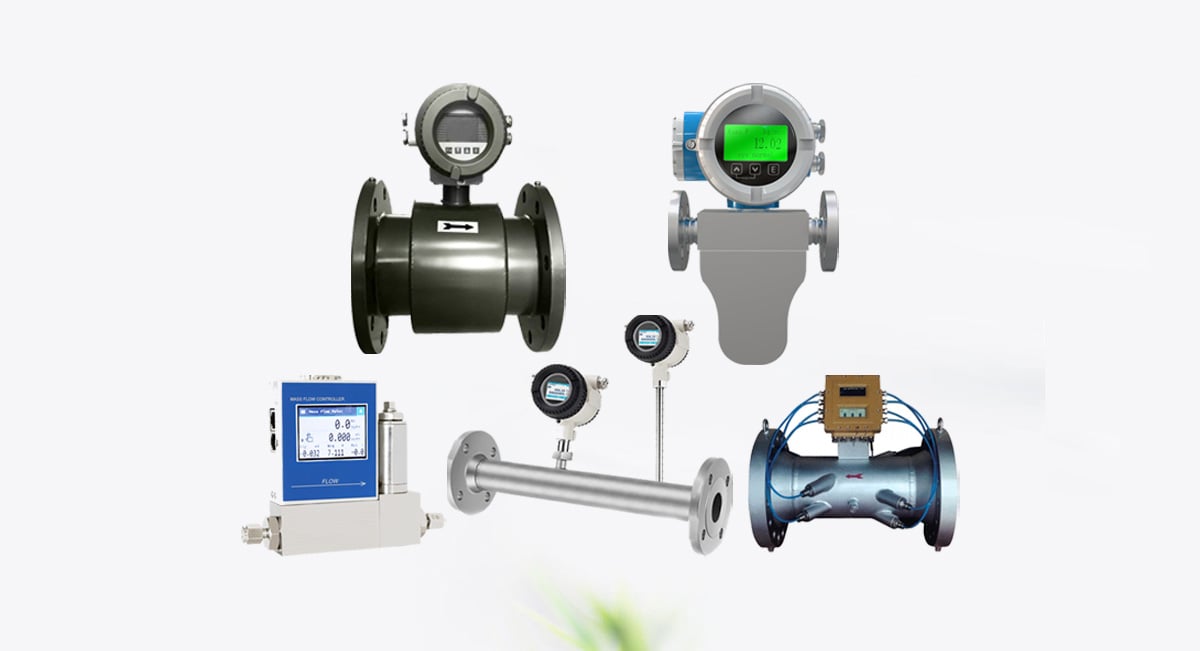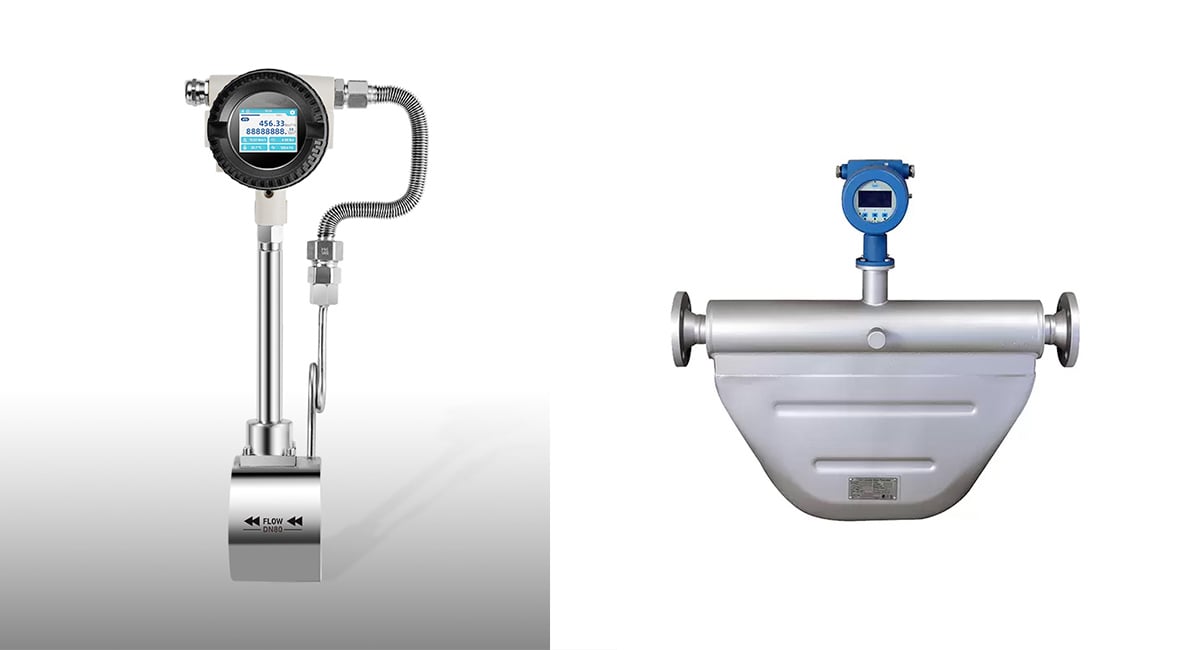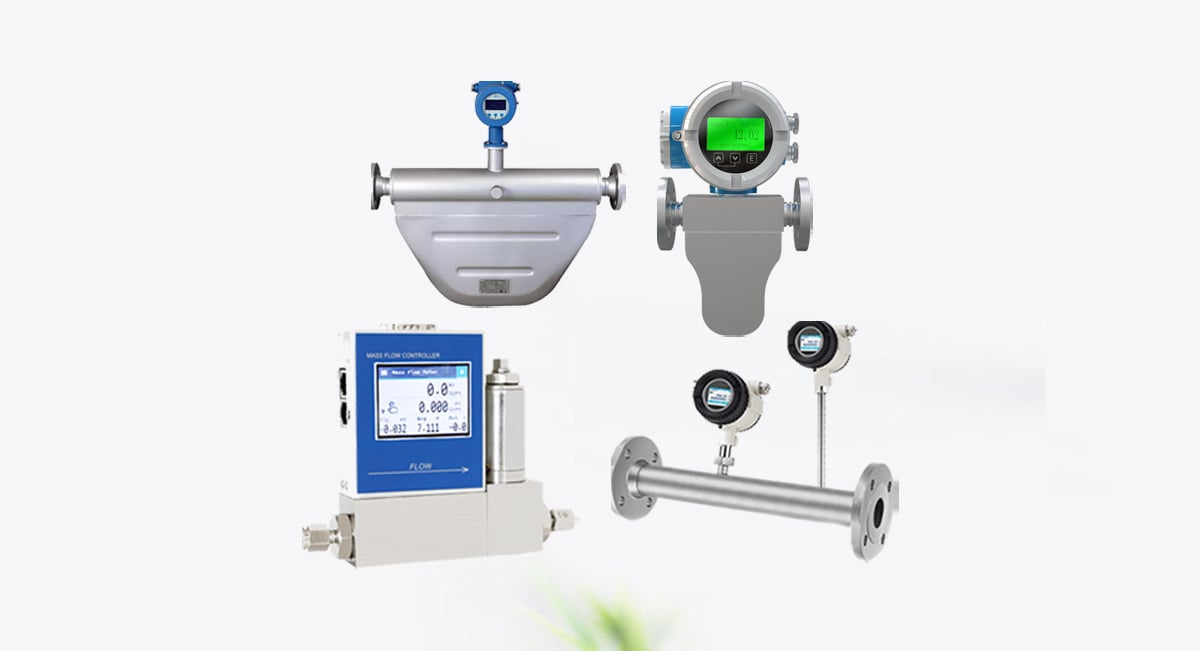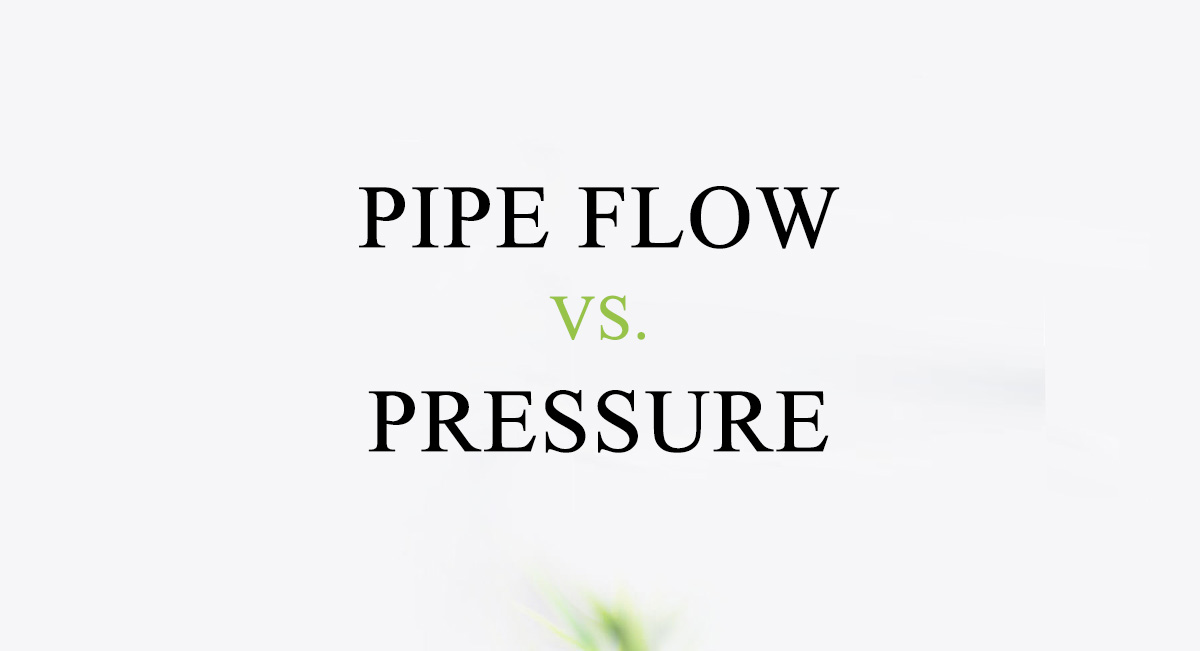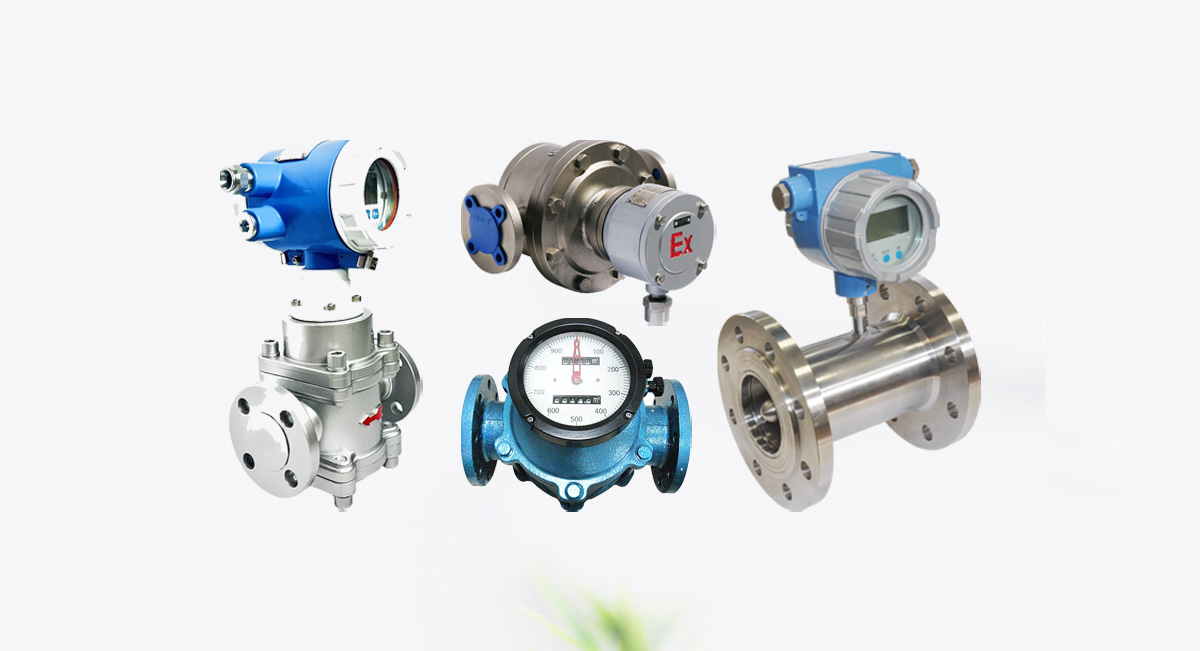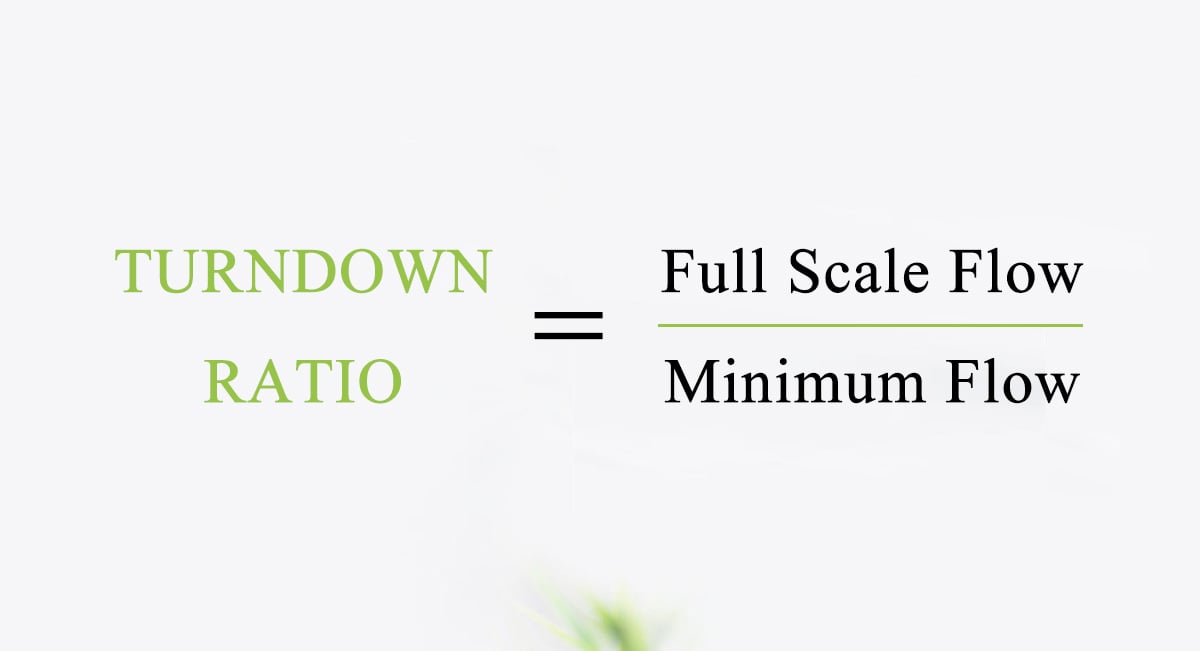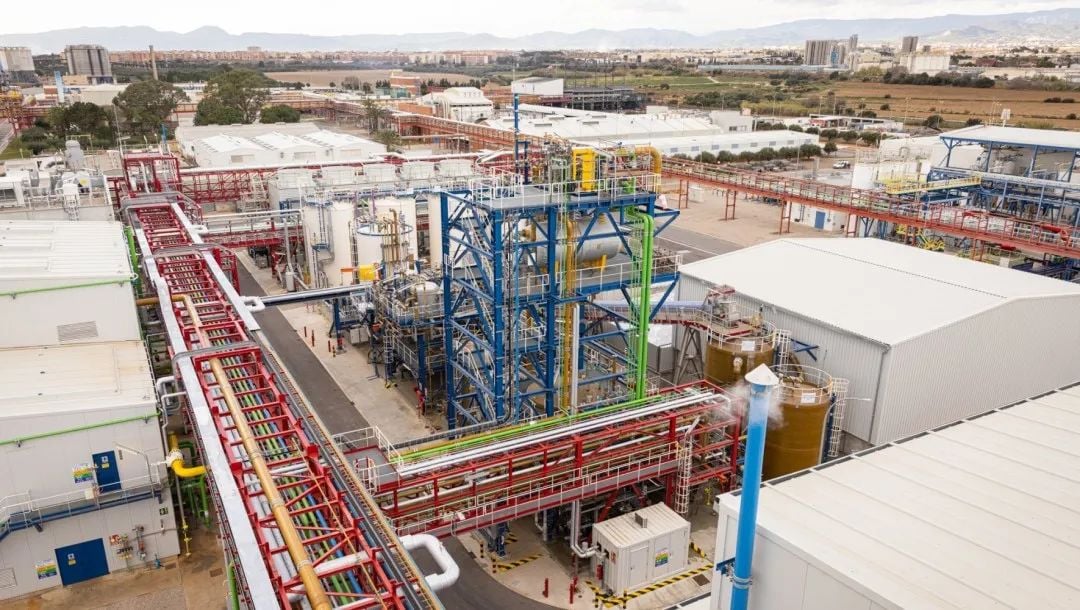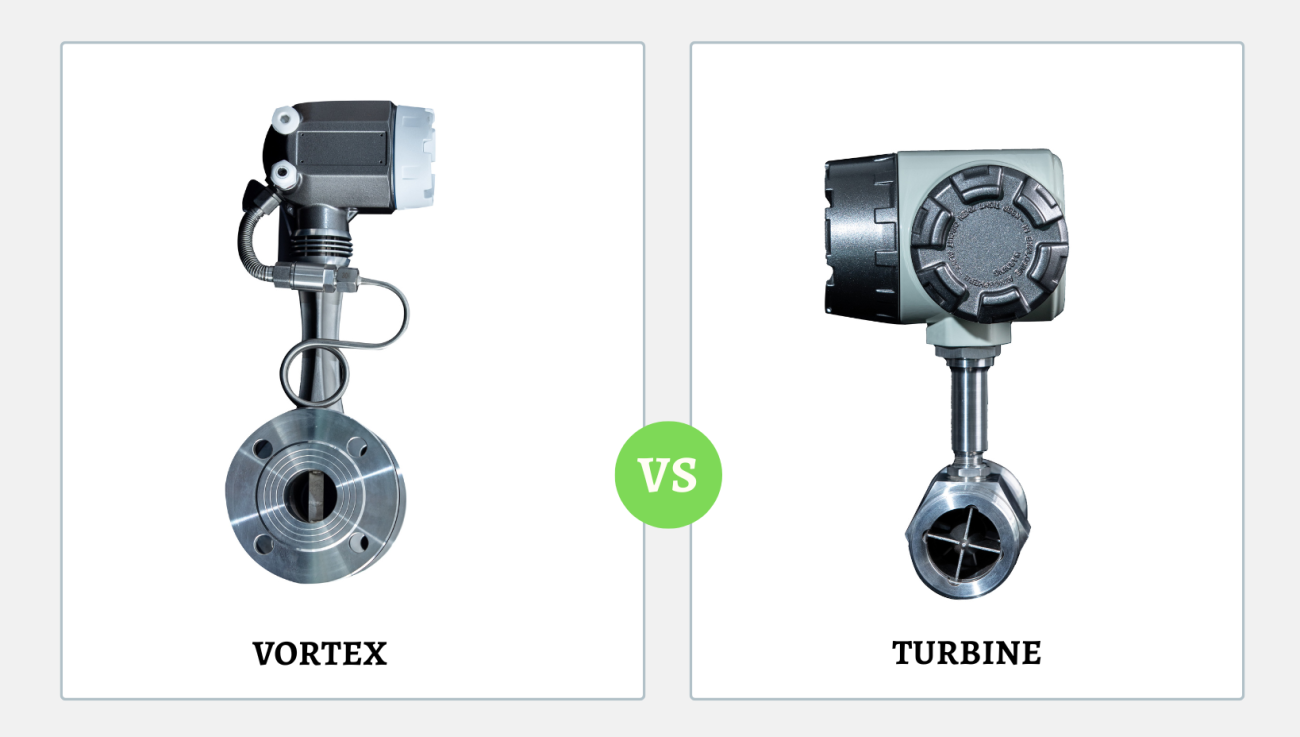In the chemical and process industries, accurate measurement and control of fluid flow are fundamental to ensuring product quality, safety, and efficiency. Chemicals often vary widely in viscosity, corrosiveness, temperature, and pressure — making flow measurement a technical challenge that requires specialized instruments.
Índice
What Is a Chemical Flow Meter?
A chemical flow meter is an instrument designed to measure the rate or total volume of chemical fluids passing through a pipeline. These fluids can include liquid chemicals, corrosive acids, alkalis, solvents, fuels, and even chemical gases.
The purpose of a chemical flow meter is to ensure that precise quantities of chemicals are delivered, mixed, or reacted as required in industrial processes. Accurate flow measurement is critical in sectors such as:
- Chemical manufacturing (acid/base dosing, solvent blending)
- Pharmaceutical production (precise ingredient ratios)
- Petrochemical and refinery processes (fuel and lubricant monitoring)
- Water and wastewater treatment (chlorine or pH-control chemicals)
- Industria alimentaria (cleaning and sterilization chemicals)
In short, chemical flow meters are indispensable tools wherever chemical reactions, dilution, or dosage control depend on precise flow data.
The Importance and Challenges of Measuring Chemical Flow
Measuring chemical flow accurately is crucial not only for product quality and efficiencysino también para safety and regulatory compliance. Many chemicals are corrosive, volatile, or toxic, and any mismeasurement can cause safety hazards, process inefficiencies, or environmental violations.
Why Chemical Flow Measurement Matters
- Accurate dosing and blending – Ensures correct chemical proportions in reactions and formulations.
- Process safety – Prevents leaks, overpressure, or dangerous reactions caused by incorrect chemical flow.
- Cost control – Reduces waste and optimizes resource consumption.
- Regulatory compliance – Maintains adherence to environmental and safety regulations.
Challenges in Chemical Flow Measurement
- Corrosive or reactive chemicals Many acids, alkalis, or solvents can corrode or degrade standard materials like stainless steel or aluminum. And the wetted part or even main part must use corrosion-resistant materials such as PTFE, PFA, PVDF, or Hastelloy.
- Varied viscosity and density Chemical fluids can range from low-viscosity solvents a highly viscous resins or oils. Some flow meters are sensitive to viscosity changes, making them unsuitable for certain applications.
- Temperature and pressure extremes Processes like polymerization or distillation can involve high temperatures (up to 300°C) y high pressures, which affect sensor accuracy and material compatibility.
- Presence of particulates or gas bubbles Slurries or aerated liquids can interfere with flow readings in volumetric or velocity-based flow meters.
- Hazardous environments Chemical plants often require explosion-proof or intrinsically safe flow meters certified for use in hazardous areas (ATEX, IECEx).
For these reasons, selecting a proper chemical flow meter requires careful consideration of both the chemical properties y operating conditions.
Recommended Flow Meter Types for Chemical Applications
Not all flow meters are suitable for chemicals. Below are the most common types recommended for measuring different kinds of chemical fluids, along with their working principles, advantages, and limitations.
Caudalímetros Másicos Coriolis
Principio de funcionamiento:
Coriolis flow meters measure the flujo másico of fluids by detecting the deflection caused by fluid movement through vibrating tubes.
Ventajas clave:
- Direct measurement of flujo másico (no need for density compensation)
- High accuracy (±0.1–0.2%)
- Adecuado para liquids, slurries, and gases
- Funciona bien para high-viscosity or corrosive chemicals
Limitaciones:
- Mayor coste inicial
- Sensitive to vibration
Lo mejor para:
High-value or critical processes such as acid dosing, solvent delivery, polymer productiony pharmaceutical manufacturing.
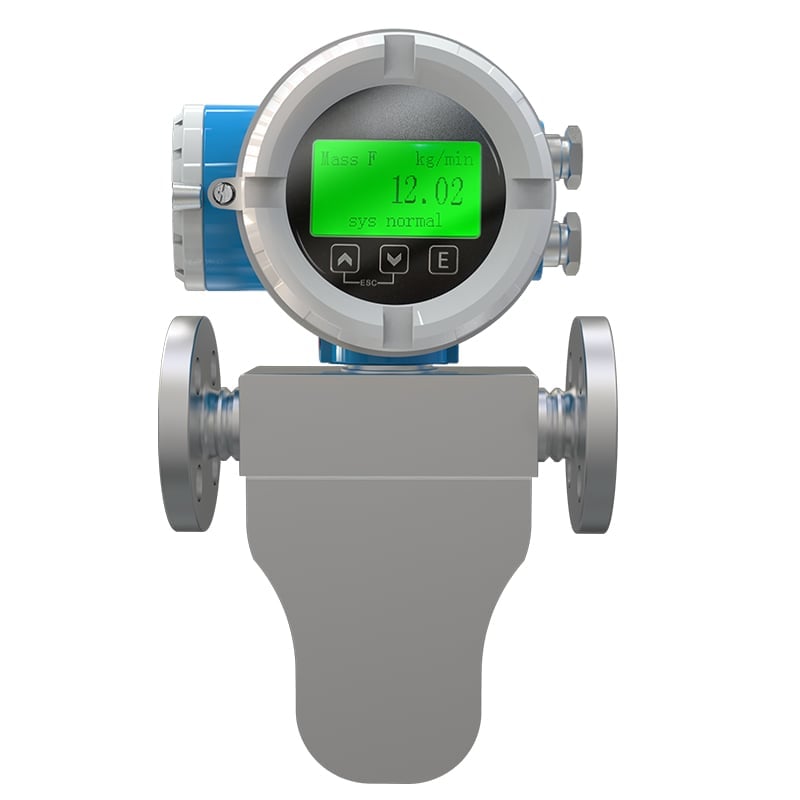
- Alta precisión de hasta ±0,1 %, Buena fiabilidad
- Buenas prestaciones de estabilidad cero y antiinterferencias
- Sin piezas móviles, no requiere mantenimiento
- Comunicación digital múltiple, incluido Hart
Caudalímetros másicos térmicos
Principio de funcionamiento:
These meters measure gas flow by detecting the heat dissipation caused by the gas moving past a heated sensor element.
Ventajas clave:
- Ideal para chemical gases like nitrogen, hydrogen, or chlorine
- Direct mass flow measurement (independent of pressure and temperature)
- No moving parts — low maintenance
Limitaciones:
- Limited to gases limpios y secos. Here’re more ideas for caudalímetros de gas.
- Not suitable for liquids or wet gas mixtures
Lo mejor para:
Monitoring chemical gas flow in inerting systems, gas blending, or leak detection.
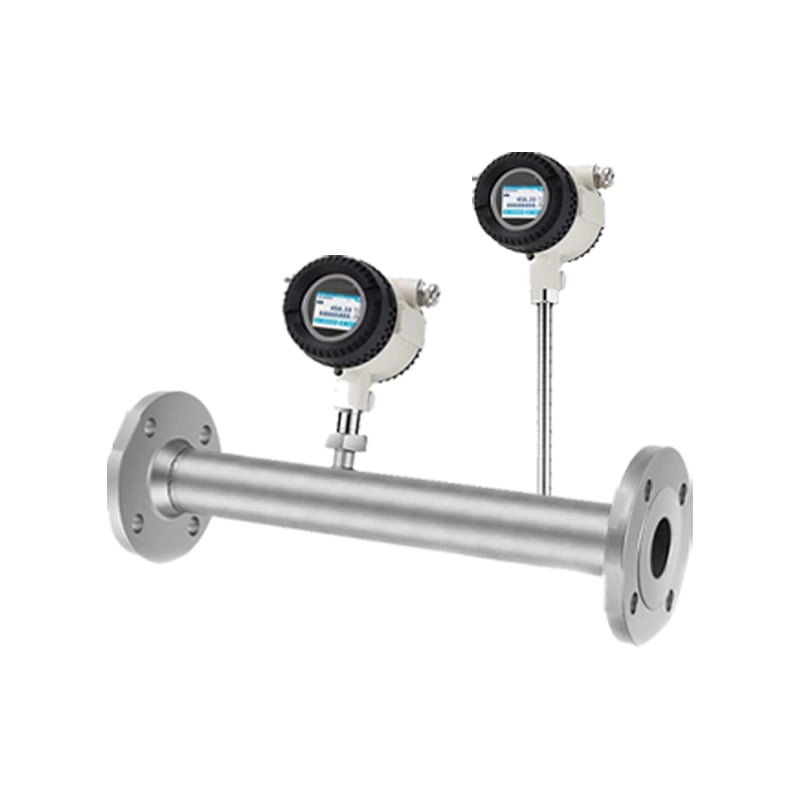
Caudalímetros másicos térmicos
- Clase de protección contra explosiones: Ex db IIC T6 Gb / Ex tb IIIC T80°CDb.
- Medios: Aire comprimido, nitrógeno, oxígeno, dióxido de carbono y otros gases no condensantes.
- Relación de reducción ultraancha de 1:2500, el rango de medición es de 0,1 Nm/s a 250 Nm/s.
- Procesamiento de señales totalmente digital, mayor precisión y estabilidad a largo plazo.
Caudalímetros magnéticos
Principio de funcionamiento:
Caudalímetros magnéticos operate based on Faraday’s law of electromagnetic induction, measuring voltage generated by conductive fluids passing through a magnetic field.
Ventajas clave:
- Sin piezas móviles
- Excellent for corrosive, conductive liquids
- High accuracy even with varying viscosity
Limitaciones:
- Only suitable for líquidos conductores
Lo mejor para:
Acids, bases, salt solutions, wastewatery chemical slurries.
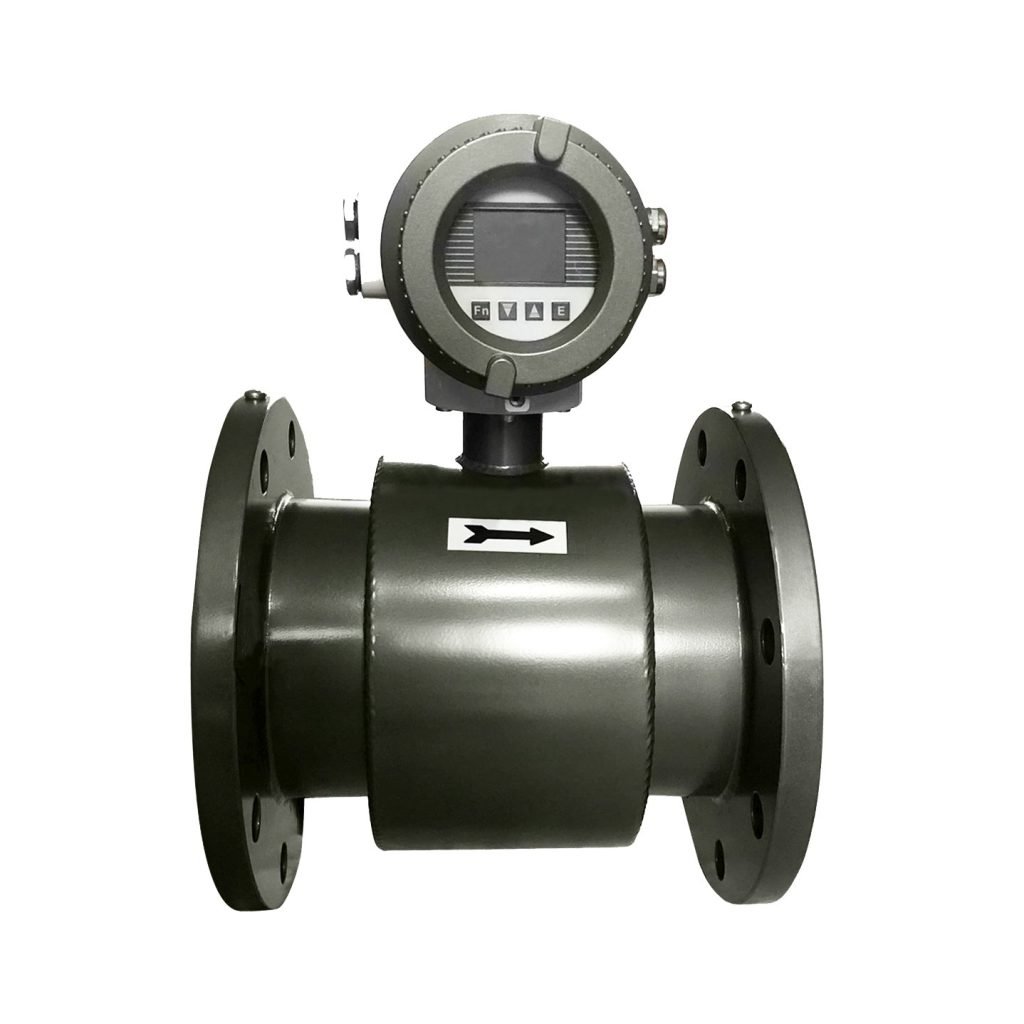
Caudalímetros electromagnéticos
- Revestimiento de PU, PFA, ETFE o FEP: excelente resistencia química y a la abrasión
- Wide range of electrode materials, including corrosion-resistant materials like Hastelloy.
- High accuracy up to ±0.2 %
Caudalímetros de desplazamiento positivo
Principio de funcionamiento:
These meters physically trap a fixed volume of fluid and count how many times the chamber fills and empties.
Ventajas clave:
- Excellent for fluidos de alta viscosidad like oils, adhesives, or resins. Most recommended for caudalímetros de aceite y caudalímetros de combustible.
- High accuracy even at low flow rates
- Independent of flow profile and pipe orientation
Limitaciones:
- Contains moving parts that require maintenance
- Not suitable for abrasive or particulate-laden fluids
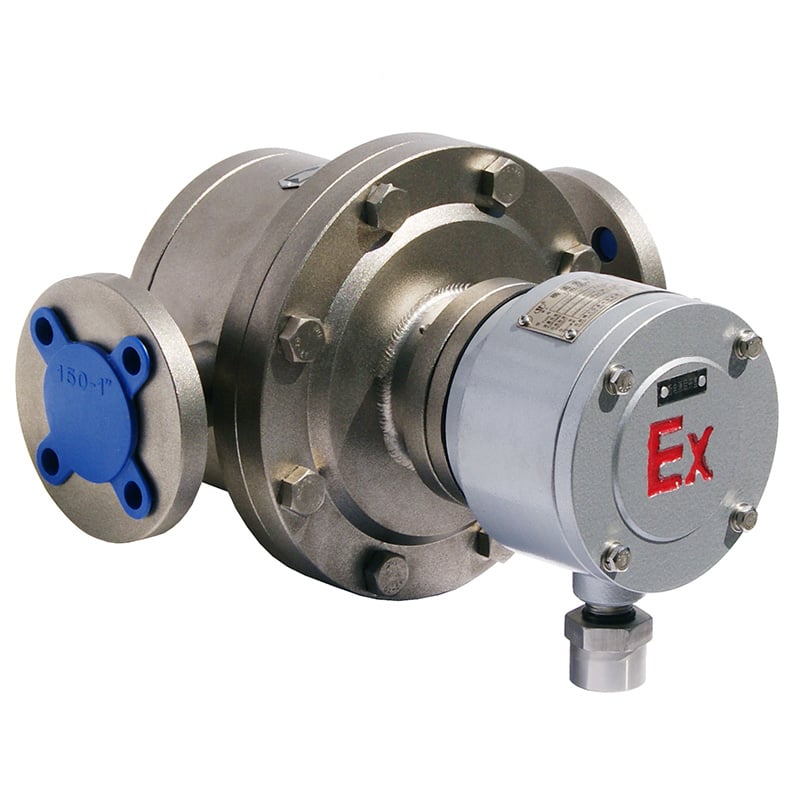
Caudalímetros de desplazamiento positivo
- Funcionamiento suave del rotor en espiral con vibraciones mínimas para un rendimiento constante
- Amplio rango de medición con buena repetibilidad
- Medición de alta precisión con una exactitud de hasta ±0,2%
- No es sensible al cambio de viscosidad
- Optimizado para la medición de líquidos de mayor viscosidad
Lo mejor para:
Lubricants, paints, polymersy non-corrosive chemical liquids.
Caudalímetros ultrasónicos
Principio de funcionamiento:
Ultrasonic flow meters measure flow rate using sound waves — either by the tiempo de tránsito o Doppler method.
Ventajas clave:
- No intrusivo (clamp-on type available)
- Works for both conductive and non-conductive fluids
- Adecuado para corrosive or sterile processes
Limitaciones:
- Accuracy affected by bubbles or suspended solids
- Requires a clean pipe surface for clamp-on installation
Lo mejor para:
Solvents, cooling liquids, and corrosive acids where contamination must be avoided.
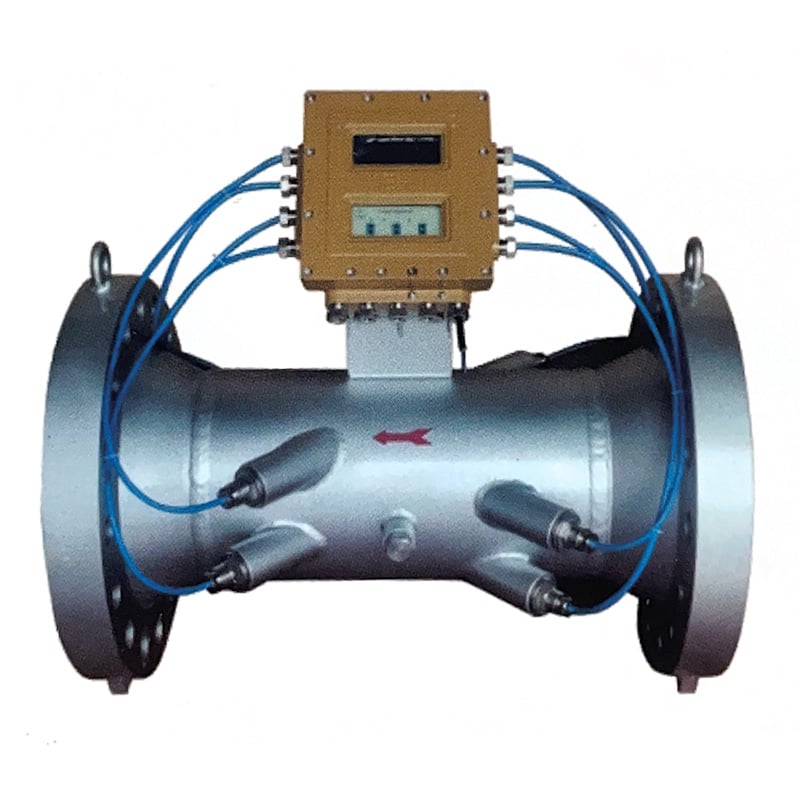
Medidor ultrasónico de caudal de gas
- Alta precisión para gas de hasta ±0,5%
- Sin piezas móviles, sin pérdida de presión, sin obstrucciones en la línea
- Sin lubricación ni mantenimiento periódico
- La medición no se ve afectada por las propiedades del gas
- Relación de reducción de 100:1
- Capacidad bidireccional
Gas Mass Flow Controllers (MFCs)
Principio de funcionamiento:
MFCs combine a mass flow sensor, a valve, and a control circuit to precisely measure and control gas flow in real-time.
Ventajas clave:
- Provides precise flow control, not just measurement
- Compact and suitable for laboratory or pilot-scale processes
- Funciona bien con reactive or specialty gases
Limitaciones:
- Designed primarily for caudales bajos
Lo mejor para:
Gas mixing, coating processes, and catalyst research.
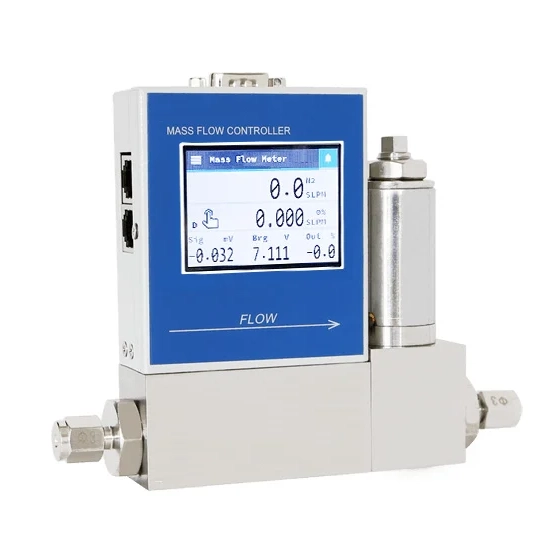
- Designed for low flow gas / liquid measuring
- It can measure high viscosity fluid and high density gas
- Designed for low flow gas / liquid measuring
- Controlador PID integrado para regular el caudal
- Medición directa del caudal másico, compensación automática de la temperatura
How to Choose the Right Chemical Flow Meter
Selecting the correct chemical flow meter requires evaluating several technical and chemical parameters. Below are the main criteria to guide your selection:
1. Identify the Chemical Properties
- Corrosividad: Choose materials like PTFE, PFA, or Hastelloy for aggressive acids or alkalis.
- Conductividad: Use caudalímetros magnéticos for conductive fluids; for non-conductive fluids, consider ultrasonic or Coriolis types.
- Viscosidad: For viscous fluids, desplazamiento positivo o Coriolis flow meters perform better.
2. Define the Flow Range and Pipe Size
Each meter has an optimal flow range. Oversized or undersized meters will reduce accuracy. Always match the flow meter’s range to your process flow rate.
3. Operating Conditions
- Temperature and pressure must be within the meter’s limits.
- In hazardous environments, select explosion-proof o intrinsically safe models.
4. Installation Requirements
- Consider available space, orientation, and maintenance access.
- Some flow meters (like ultrasonic clamp-on types) are ideal when pipe modification is not possible.
5. Output and Communication
Modern chemical flow meters support 4–20 mA, Modbus, HART, or digital outputs for integration into process control systems.
6. Accuracy and Maintenance
If precision is critical (e.g., chemical blending or dosing), choose Coriolis o caudalímetros magnéticos. Some suppliers also provide very high accuracy PD flow meters like Instrumentos Metlan.
A chemical flow meter plays a vital role in controlling and monitoring chemical processes with accuracy and safety. Because of the diversity of chemical fluids — from corrosive acids to viscous oils — there is no single flow meter suitable for all situations. Ultimately, the right flow meter should match the chemical’s physical properties, the process conditions, and the required accuracy.
About Metlan Instruments Chemical Flow Meters
En Instrumentos Metlan, we specialize in high-precision flow measurement and control solutions for industrial applications. Our product range includes caudalímetros másicos térmicos, Caudalímetros másicos Coriolis, positive displacement metersy mass flow controllers designed for both gases and liquids — including corrosive and specialty chemicals.
With advanced sensor technology and robust materials, Metlan Instruments ensures long-term stability, corrosion resistance, and exceptional accuracy — helping chemical plants, laboratories, and process industries achieve precise and reliable flow measurement.

